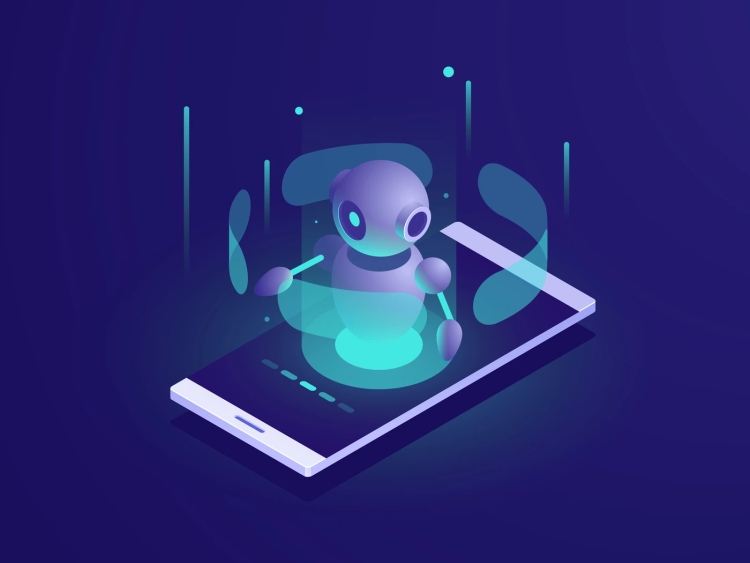The Role of Generative AI in Content Creation: Is It a Threat to Creators?
Generative AI has significantly impacted how content is produced. From generating text, images, and videos to assisting in brainstorming ideas, AI-driven tools have allowed creators to streamline their workflows. These systems analyze vast amounts of data and use complex models to produce content that often resembles human work.

Artificial intelligence has been shaping multiple industries, and content creation is no exception. With the rise of generative AI, writers, designers, and digital creators have witnessed both opportunities and concerns. Some see AI as a tool that enhances efficiency, while others worry about its potential to replace human creativity. The question remains: is generative AI truly a threat to creators, or is it simply another evolution in content production?
How Generative AI is Changing Content Creation
Generative AI has significantly impacted how content is produced. From generating text, images, and videos to assisting in brainstorming ideas, AI-driven tools have allowed creators to streamline their workflows. These systems analyze vast amounts of data and use complex models to produce content that often resembles human work.
Similarly, businesses have started to integrate AI-based writing tools to generate blog posts, product descriptions, and marketing copy. In the same way, AI-generated artwork has gained popularity, enabling companies to produce visual content without the need for traditional graphic design methods. However, the growing presence of AI in creative fields has raised concerns about originality and authenticity.
The Concerns of Human Creators
Despite the benefits that AI provides, many creators feel uneasy about its increasing role in their industries. One of the biggest fears is job displacement. When AI can produce written articles, illustrations, or music compositions within seconds, the demand for human input may decline.
In comparison to human creators, AI lacks personal experience, emotions, and cultural nuances. While AI can generate content based on patterns, it cannot replicate the depth of human expression. Still, some businesses prioritize efficiency over creativity, opting for AI-generated work due to lower costs and faster turnaround times.
Another concern is originality. Since AI models are trained on existing content, there is a risk of unintentional plagiarism. Creators who rely on AI-generated material must ensure that their work remains unique and does not infringe upon intellectual property rights.
The Ethical Debate Surrounding AI-Generated Content
The use of generative AI has also led to ethical debates. Transparency is a major issue, as audiences may not always be aware when they are consuming AI-generated content. While some platforms label AI-generated material, others do not, creating potential trust issues.
Moreover, AI-generated misinformation is another significant risk. If AI is used to produce fake news, misleading advertisements, or biased content, it can manipulate public perception. Consequently, creators and businesses must use AI responsibly to prevent the spread of false information.
The Role of AI as an Assistant Rather Than a Replacement
Although concerns exist, AI does not necessarily need to replace human creators. Instead, it can serve as an assistant that improves efficiency. For instance, AI tools can help with grammar checks, keyword suggestions, and content structuring, allowing writers to focus on creativity rather than mechanical tasks.
Similarly, AI-generated outlines and summaries can assist researchers by organizing information more effectively. Likewise, video editors can use AI-based software to automate tedious processes, such as color correction and background removal. In this way, AI complements rather than replaces human effort.
Maintaining Creativity in the Age of AI
To ensure that human creativity remains at the forefront, creators can adopt AI as a tool while still prioritizing originality. Instead of relying entirely on AI-generated work, professionals can use it as a starting point and refine the output with their own insights.
Of course, industries should also establish ethical guidelines for AI use in content creation. Companies and platforms can implement transparency measures, requiring AI-generated content to be labeled appropriately. In particular, setting standards for AI-assisted work can help maintain credibility within creative fields.
The Future of AI and Content Creation
The relationship between AI and human creators will likely continue to evolve. Eventually, AI may become more advanced, but it will still rely on human oversight. Even though AI is capable of producing content at a rapid pace, the human touch remains irreplaceable in storytelling, emotional depth, and artistic vision.
Moreover, new opportunities may emerge for creators who adapt to AI-driven tools. Writers, designers, and musicians who learn to work alongside AI can find ways to improve productivity while maintaining originality. Rather than fearing AI, embracing it as a collaborative tool can open new doors for creative expression.
AI in Virtual Companionship
Beyond content creation, AI has also been integrated into various aspects of daily life, including virtual companionship. AI Generated Pornstar systems have been designed to provide emotional support and interaction, helping individuals combat loneliness. These AI-driven companions offer personalized conversations and companionship, making them a unique development in artificial intelligence applications.
Conclusion
Generative AI is reshaping content creation, bringing both advantages and challenges. While it has made production faster and more efficient, it also raises concerns about originality, job security, and ethics. However, rather than replacing human creators, AI can function as a supportive tool that enhances productivity. As long as creators continue to innovate and prioritize authenticity, AI will remain an asset rather than a threat in the evolving landscape of content creation.
What's Your Reaction?

















.jpg)

